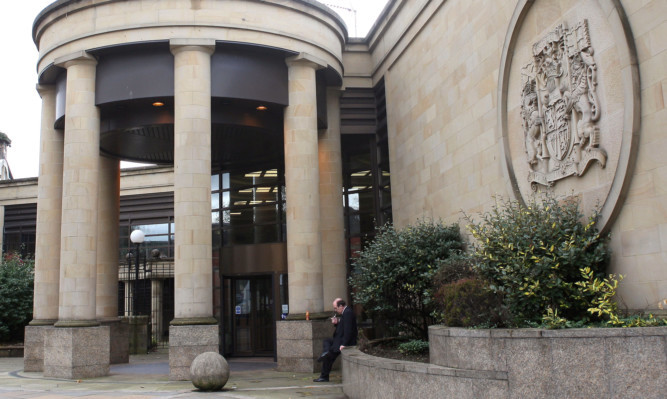Three men have been jailed for total of nine and a half years after first ever ‘cuckoo smurfing’ fraud case in Scotland.
Muhammed Zeeshan Abdul Hameed, Shahid Aslam,and Saleem Mohammed Shikari, have been sentenced to a total of nine and a half years for pleading guilty to their role in an international fraud operation.
The trio were caught in August 2013 after police saw Hameed being given a bag containing £75,150 in Dundee.
The 32-year-old was also caught with a cash counting machine after officers followed him into his house.
Police found that Hameed, Aslam and Shikhari had made large deposits into third party accounts at various banks in the city between December 2013 and January 2014.
Hameed, Aslam and Shikari received instructions through mobile telephone calls and text messages from contacts in Pakistan, the United Arab Emirates and elsewhere providing them with account numbers, sort codes and the names of account holders who were at that time expecting to receive transfers of money into their accounts from overseas, in particular from Pakistan and Iran.
They then deposited equivalent sums of cash, being the proceeds of local crimes, into the accounts without the knowledge of the account holders.
The money originally intended for the account holders was then re-routed to the local criminals, minus a commission for the launderers.
The trio laundered criminal property worth at least £672,382.
Hameed, from Dundee was jailed for five years and six months, Shahid Aslam, from Kirkcaldy, was sentenced to two years, and Saleem Mohammed Shikari, from Dundee, was given two years in prison at the High Court in Glasgow.
Lindsey Miller, Procurator Fiscal for Organised Crime and Counter-Terrorism said: “These men played a key role in an international fraud on a truly vast scale.
“This case demonstrates the ability of prosecutors in Scotland to conduct investigations that stretch across legal jurisdictions and continents, to outsmart highly experienced organised crime groups, and to bring to justice individuals involved in extremely complex frauds.
“We will continue to work closely with Police Scotland and the NCA to ensure that we stay one step ahead of these gangs, and that we dismantle their networks and bring them to justice wherever they are found.”
Detective Inspector Scott Thompson said: “I would like to thank all the dedicated and hard-working officers who were involved in this tremendously complex investigation which spanned the globe. Police Scotland worked closely with colleagues at the NCA and COPFS to close down Hameed, Aslam and Shikari’s illegal money laundering operation. They no doubt thought that by using a complex network of contacts, bank accounts and technology, their sophisticated fraud would continue and they would not be brought to justice.
“However, today’s sentencing, following the first conviction in Scotland for this type of fraud, clearly demonstrates that regardless of how clever those involved in criminality believe they are, Police Scotland, working with its partners, will continue to dismantle serious and organised crime whenever and wherever it takes place.
“Anyone who believes they have been a victim of this type of fraud should contact Police Scotland on 101.”
Andrew Pollock, NCA senior manager in Scotland, said: “Most criminals are motivated by money and they need launderers like this group to process the proceeds of a broad range of activities including drug trafficking, fraud and other acquisitive crimes, enabling further criminal activity.
“This money is often diverted abroad, making it more difficult to trace. But working with law enforcement partners at home and abroad we are determined to do all we can to disrupt the organised criminal networks – like this one – involved in money laundering.
“This is an excellent example of joint working, where the NCA were able to share resource and expert knowledge with Scottish partners to help secure these arrests and convictions.”
